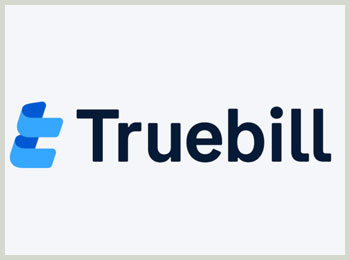Managing your finances isn’t easy. Between budgeting, tracking spending, monitoring credit, and optimizing bills, it can feel like a full-time job. Luckily, apps like Truebill, Mint, and NerdWallet aim to help make financial management simpler. But with so many features and options, how do you know which tool is right for your needs?
This comprehensive guide examines the key differences, pros, cons, and use cases of these three leading personal finance apps and websites. Let’s compare Truebill Vs. Mint Vs. NerdWallet to see which one can take control of your money.
A Brief Comparison Table
| Feature | Truebill | Mint | NerdWallet |
| Main Focus | Bill/subscription optimization | Financial tracking | Financial guidance |
| Key Features | Cancel/negotiate subscriptions, optimize bills, budgeting | Track spending, create budgets, monitor credit and investments, view net worth | Credit card/loan recommendations, calculators, money Q&A, financial tips |
| Accounts Linked | Connect accounts for limited tracking | Link all financial accounts for complete tracking | No account connections |
| Approach | Automates saving money | Tracks money | Educates on money decisions |
| Cost | Free version with paid premium options | Free version with paid premium options | Free |
| Ideal For | Cutting monthly bills and subscription costs | Tracking all finances in one place | Learning to make better financial decisions |
An Overview of Truebill
Truebill is a financial optimization app launched in 2015 that aims to save users time and money by managing subscriptions, budgeting, and bills. Here are Truebill’s key features:

- Subscription Management – Truebill automatically identifies and cancels unwanted subscriptions to eliminate wasted spending. It negotiates better rates on cable, phone plans, gym memberships, and more to optimize recurring costs.
- Bill Negotiation – Users can submit any bill to Truebill’s team to have them negotiate lower rates on your behalf, leveraging their existing relationships with major providers.
- Expense Tracking – Link accounts to track spending and get alerts about fees, overcharges, or unnecessary charges to spot wasted money.
- Budgeting – Set budgets across categories so you can actively monitor spending levels throughout the month. Customizable alerts notify you as limits are reached.
- Financial Dashboard – Detailed reports on cash flow, subscription costs, budgets, and more provide a comprehensive view of your finances.
Truebill aims to optimize finances by cutting unnecessary spending and fees on bills and subscriptions. The app provides automation and savings without having to manually identify areas for improvement yourself.
An Overview of Mint
Mint, owned by Intuit, is one of the most popular personal finance apps serving over 20 million users. Mint’s capabilities include:

- Budget Tracking – Set budgets across spending categories and track every purchase against those limits. Charts and graphs visualize spending.
- Net Worth Tracking – Mint provides a holistic view of assets like savings and investments Vs. liabilities like loans and debt to calculate total household net worth over time.
- Bill Payment – Pay any bill directly within the Mint app. View upcoming due dates and track payment history.
- Credit Monitoring – Mint shows your credit score and report from TransUnion and provides alerts when anything changes.
- Investment Overview – See balances across investment accounts like 401ks alongside your other financial accounts.
- Mobile App – Robust iPhone and Android apps allow managing finances on the go with all the same features.
Mint excels at tracking every aspect of your financial life in one place and identifying spending trends through detailed charts and reporting.
An Overview of NerdWallet
NerdWallet takes a different approach by focusing specifically on providing financial guidance and tools to help users make smart money decisions. Key features include:

- Credit Card and Loan Guidance – NerdWallet offers tailored recommendations for credit cards, loans, mortgages, student loans, and more based on your needs and credit profile.
- Financial Calculators – Their library of calculators allow you to crunch numbers on retirement, investing, mortgage payments, credit card payoff timelines, and much more to inform financial decisions.
- Money Q&A Platform – Ask questions and get unbiased expert answers on any financial topic within one business day.
- Financial Education – NerdWallet provides extensive guides, tips, and product comparisons to teach consumers how to responsibly manage money.
While NerdWallet doesn’t directly track spending, its guidance arms you with knowledge to improve finances by optimizing spending habits, credit cards, loans, investments, banking, and more.
Also Read: Comparison Between Edelman Financial Engines And Fisher Investments
Key Differences and Similarities
While all three services aim to improve finances, they take distinct approaches:
- Truebill offers automation and optimization of bills and subscriptions but limited broader financial tracking.
- Mint focuses on complete tracking of all accounts in one dashboard but doesn’t provide guidance or automation.
- NerdWallet excels at financial education and advice but doesn’t directly monitor user finances.
Some similarities:
- All three are free for basic users with optional premium paid tiers offering additional features.
- They are user-friendly apps/sites catering to everyday individuals, not accounting professionals.
- Available on both desktop and mobile.
Pros and Cons of Each Service
Truebill Pros
- Saves time by automating bill optimization and subscription management
- Proactively finds ways to cut monthly costs
- Bill negotiation service gets customers the lowest rates
- User-friendly mobile app for onboarding and tracking finances
Truebill Cons
- Limited investment tracking and broader financial management capabilities
- Must trust Truebill’s team to handle sensitive financial account details
- Additional fees for premium subscription analysis features
Mint Pros
- Complete financial picture in one intuitive dashboard
- In-depth tracking and reporting of all accounts and transactions
- Identifies spending trends and budgets through visual charts
- Large user base provides refined product experience
Mint Cons
- Can feel overwhelming with so much financial data
- Manual work required to identify ways to save money and optimize
- Security risk in linking numerous accounts
- Mobile app can be slow and clunky
NerdWallet Pros
- Financial guidance and education from experts
- Custom recommendations based on your specific needs
- Informative tools like calculators and quizzes
- Unbiased advice on financial products and decisions
NerdWallet Cons
- No direct tracking of your actual accounts and finances
- Must implement guidance yourself instead of automating optimization
- Primarily informational, not a complete money management solution
Also Watch This Review Video:
Ideal User Case for Each App
- Truebill – Users wanting to save time by automating bill payments, cancelling unused subscriptions, reducing fees, and optimizing recurring costs.
- Mint – Users desiring a comprehensive 360-degree view of all finances in one place to monitor net worth and track spending.
- NerdWallet – Users needing education and guidance to make better financial decisions related to banking, credit, loans, investments, and more.
While all three services can be useful, consider which best aligns with your top financial priorities and needs.
Also Read: Comparison Between LPL Financial And Edward Jones.
Frequently Asked Questions (FAQs)
For automated bill optimization and cutting subscription costs, Truebill is likely better. But for tracking all your finances in detail, budgeting, monitoring credit, and visualizing spending, Mint offers more robust capabilities. It depends on your specific needs.
Mint is better if you want to directly monitor accounts, transactions, investment balances, credit, and net worth in one dashboard. NerdWallet is better if you mainly need guidance and education to inform financial decisions. Mint focuses on tracking while NerdWallet focuses on advising.
Apps like Goodbudget, Wallet, and Pennylane provide envelope budgeting features without requiring you to link financial accounts. They allow manual entry of your income sources and spending to allocate towards virtual envelopes categorizing your budget.
Apps like Personal Capital, You Need a Budget (YNAB), and EveryDollar offer alternative approaches to Mint with some enhanced features. Personal Capital provides more investment tracking support. YNAB and EveryDollar focus more on active budgeting and planning. Better is subjective based on your needs.
Also Read: Comparison Between NerdWallet And YNAB
The Bottom Line
Truebill, Mint, and NerdWallet take different approaches to improving your finances. Truebill optimizes subscriptions and bills automatically, Mint tracks every financial account, and NerdWallet educates through guidance and tools.
Consider which aligns best with your top money management needs. Using a combination of automation, tracking, and financial education can provide a powerful complete solution. Take control of your finances with the help of tools like these.

